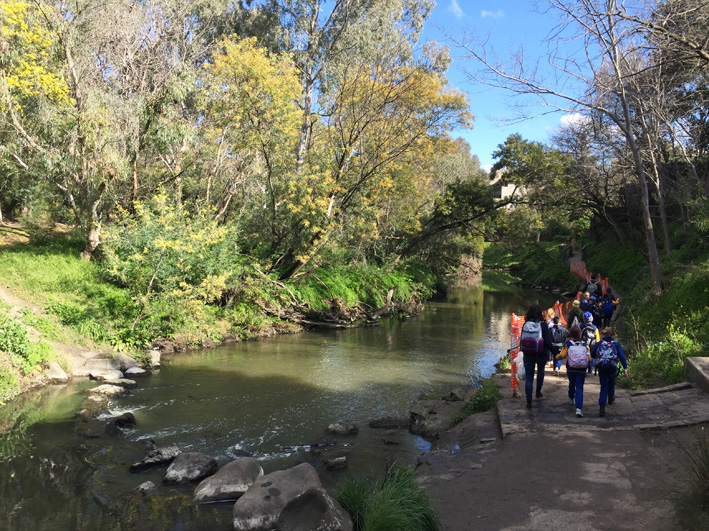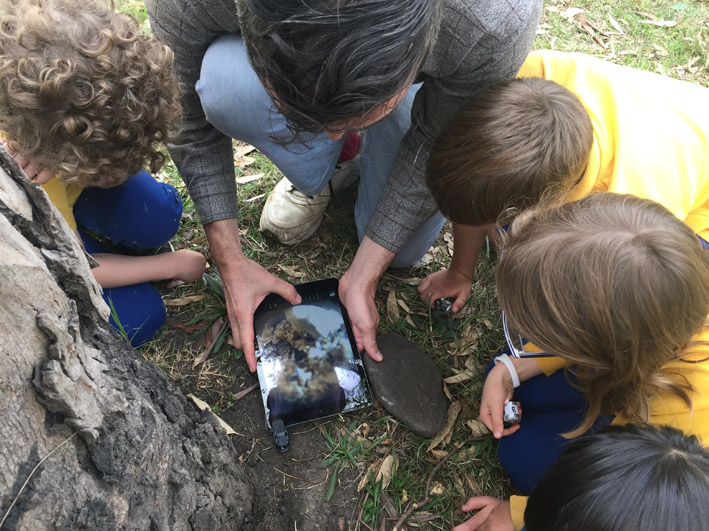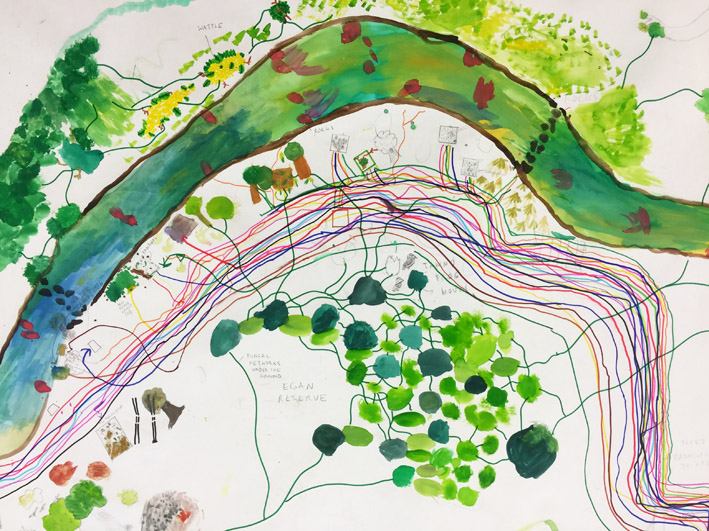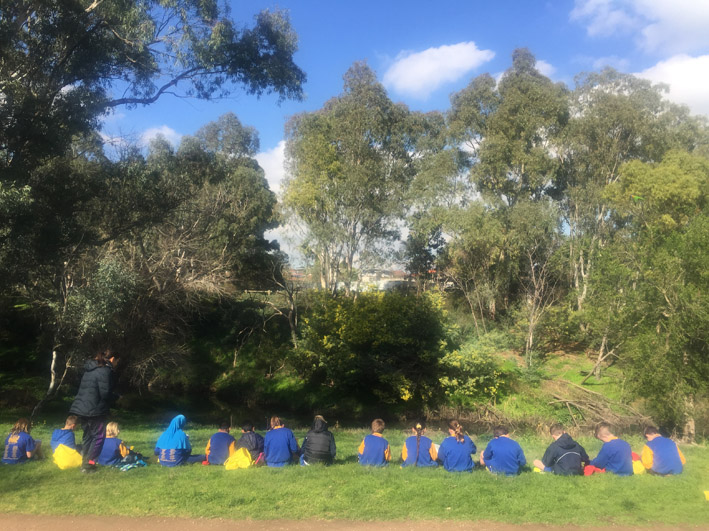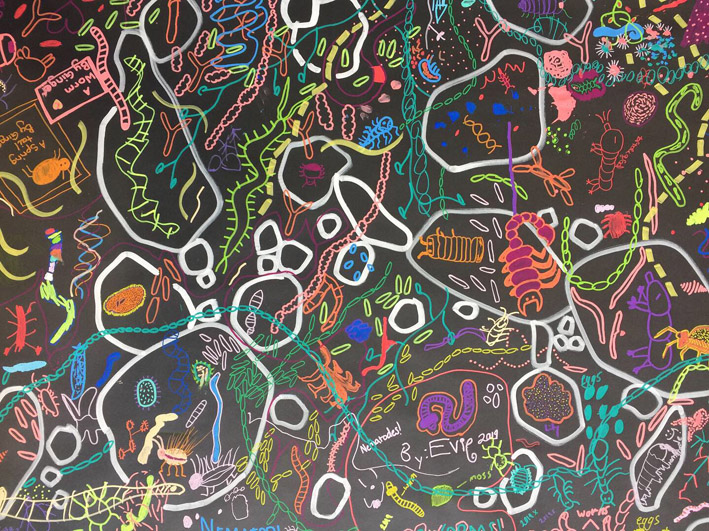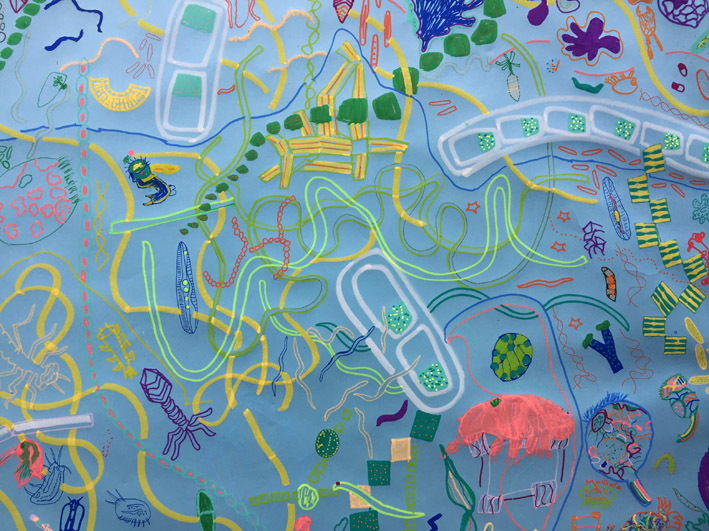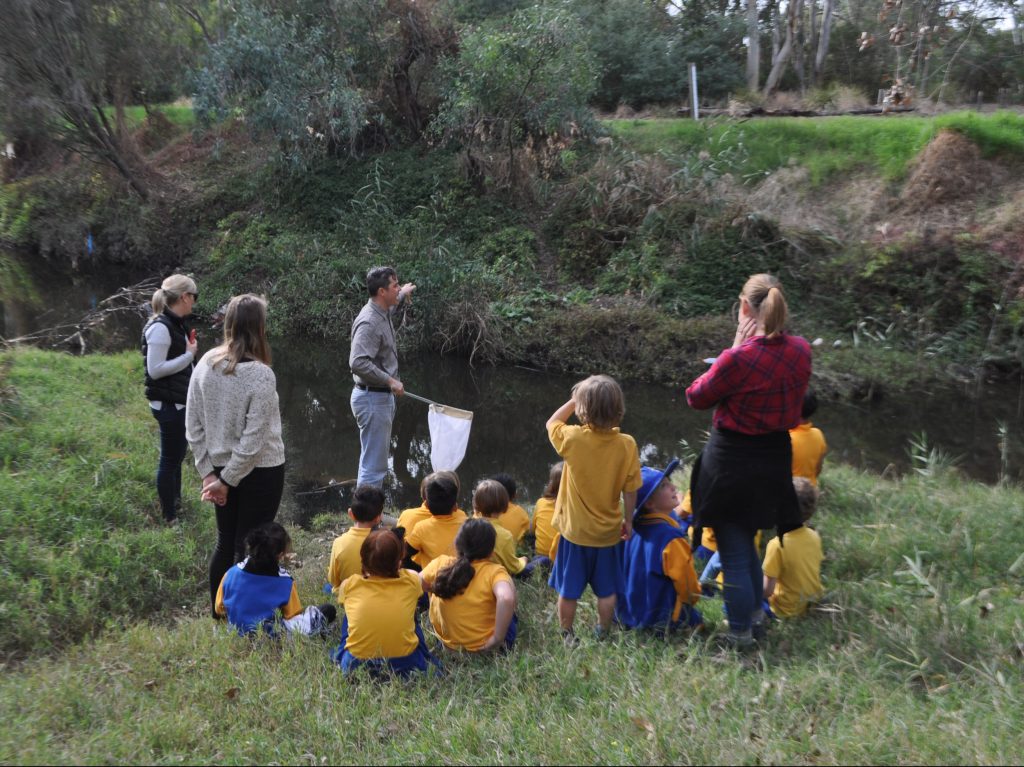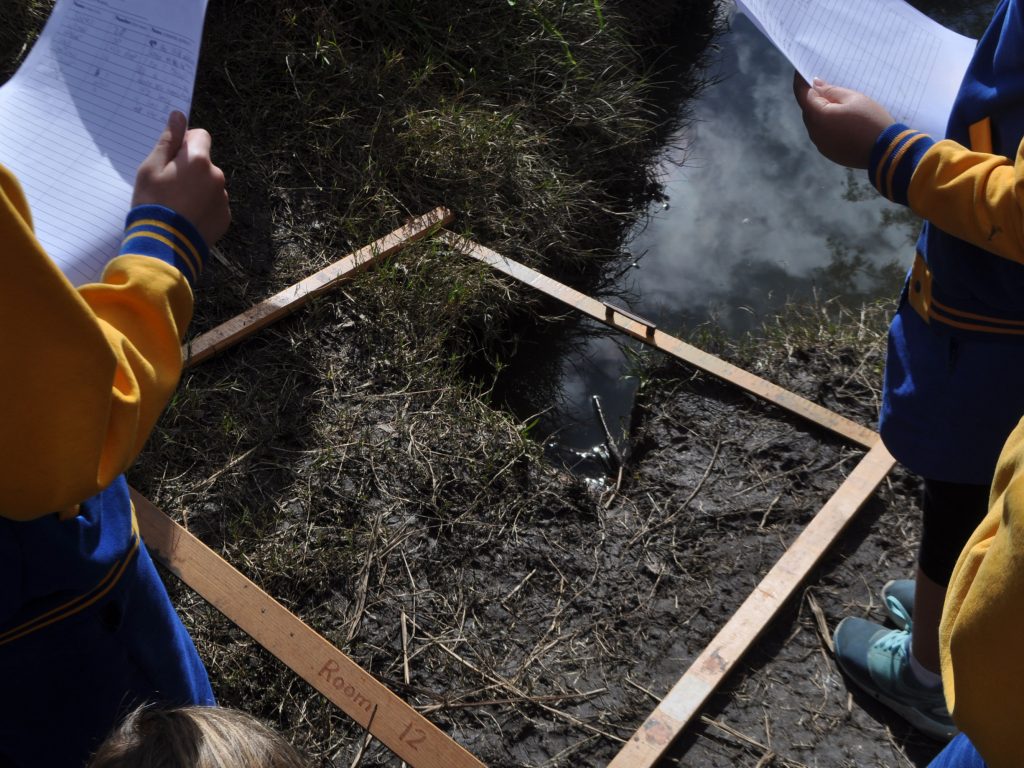Throughout 2019, Scale Free Network have been working alongside educators/academics (Angela Foley from Merri Creek Management Committee, Sarita Gálvez from Monash University), Wurundjeri elders (Uncle Bill Nicholson and Uncle Dave Wandin), artists (Slow Art Collective) and teachers and students from Moreland Primary School on a place-based learning project, now known as the ‘Creekulum’.
Drawing on Merri Creek as our inspiration, we have been visiting, observing, wondering about, exploring, mapping, drawing and getting to know this body of water and surrounding ecosystem – both the parts we can and cannot see – and reflecting on this part of Wurundjeri Country as it is now, as it has been in the past and what it might become.
Collectively, we have been integrating an ecology of knowledges in order to expand our understanding, appreciation, awareness and connection to Merri Merri, and to Country more broadly. We have been incorporating creative, scientific, indigenous and more-than-human perspectives into our process, through a combination of drawing, presence, analysis, silence, play, discussion, language, sensory exploration, storytelling, journalling and observation through microscopes.
Over the year, Scale Free Network has been working with different year levels at Moreland Primary School (years 1/2, 3/4, 5/6 + Preps) for two weeks at a time, visiting with Merri Merri each day, accompanied by teachers, parents and grandparents. Our journey to and from the creek has typically involved a visit to the East Coburg Neighbourhood House where we have set-up our pop-up science lab, (and also made very good use of their bathroom facilities!)
Envisioned and coordinated by Sarita Gálvez and funded with a ‘Pick My Project’ community grant from the Victorian State Government, the Creekulum project has been an incredible opportunity for Scale Free Network to work with an entire school community, to really focus on a particular environment as a source of artistic and scientific enquiry, to integrate language and knowledge from the traditional owners of this land, and to find ways to talk to students about the violence of colonisation its ongoing effects in our society and our environment.
Caring for Country is everyone’s responsibility.
p.s. check out the Creekulum mural (created in February 2021)
